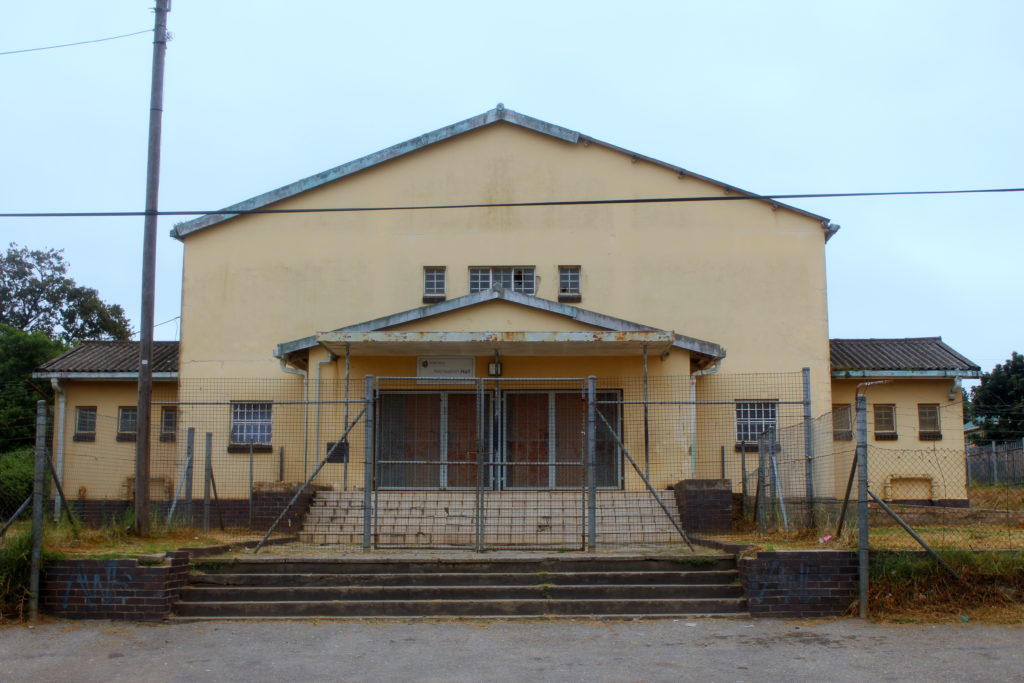By JULIAN JACOBS
You see them every day walking with their trolleys gathering cardboard, metal, plastic items and scratching around for food in your rubbish bags you put out in the street on rubbish collection days. You see them sitting on the side-walks asking for money. They are everywhere and often invisible. Some of you give them food, or odd jobs and provide them shelter. This week the Makana Municipality and its town stakeholders took action to assist them during the coronavirus lockdown period by providing them with temporary shelter.
Three people have so far moved into a temporary shelter established by Makana Municipality in response to the Coronavirus pandemic. However, officials have thus far failed in their negotiations with a number of people living on and next to the landfill, who are reportedly reluctant to leave behind the structures they’ve built there.
Several other homeless people, once vetted by the Department of Development, will move into the centre soon. Two sites in Makhanda have been identified and approved. Males and females will be housed in adjacent buildings
The housing of the homeless across South Africa forms part of the Disaster Management Act: Regulations to address, prevent and combat the spread of the Coronavirus COVID-19: Amendment. Clause 11 D(2) (a) states: “The State shall identify temporary shelter that meet the necessary hygiene standards for homeless people.”
Homeless people, those who currently do not have a job, or a home, nor have any family members living in Makhanda during this lockdown period will be housed at the shelter. The decision to move the homeless community into the temporary shelters was approved by the Makana Joint Operating Committee (JOC).
Makana’s Director of Public Safety and Community Services, Kelello Makgoka said that at both venues there are running water, sanitation, electricity, mattresses and blankets, food supplies, and 24-hour security.
Officials from the Department of Social Development on instruction from the Makana JOC investigated the landfill site where 26 people were living. Their findings were that out of the 26 people living there, four people met the criteria for being homeless.
It was, however, decided that 15 of the 26 could be moved to the temporary shelter. The others have family members living in Makhanda and officials are trying to reunite them with their families during this lockdown period. “If this was not feasible, they will be housed at the temporary shelters as well. We are still trying to locate other homeless people living in our town,” said Makgoka.
Officials of the Department of Health will be screening and testing all homeless people before they are housed in the temporary shelters.
While the government has provided the basics, such as mattresses and blankets, the temporary shelter sites need more to make them properly liveable and official have requested that the public donate:
Household items: washing basins, a kettle or an urn, blankets, cushions and linen/sheets, an iron and ironing board, black refuse bags.
Entertainment: Books, magazines, games, toys and a television set.
Personal care items: Bath soap, hand sanitisers, face cloths, masks, gloves, toilet paper, sanitary towels, toothpaste and tooth brushes, bath towels, washing powder, baby nappies, vaseline/body lotion and deodorants, clothing items, shoes, hair brushes and combs.
Food and utensils: Tinned food, bread, fruit, vegetables, fruit juice and bottled water. Plastic or melamine plates and mugs, spoons, knives and forks for eating.
If you would like to donate items for the homeless shelters, please call Kelello Makgoka on 046 603 6148/6291 or fill in this form: https://docs.google.com/…/
All community donations for shelters should please be dropped at the Fire Station in town. The Disaster Management officials will keep a register of the donations.
If you know someone who needs to be accommodated in a shelter for the homeless during the lockdown period, please refer them to the Department of Social Development offices in Nompondo Street, Joza. While it is likely the Department will establish a remote site for easier access, their opening hours at the Joza office are currently limited and members of the public are advised to go there between 9am and midday on weekdays.


